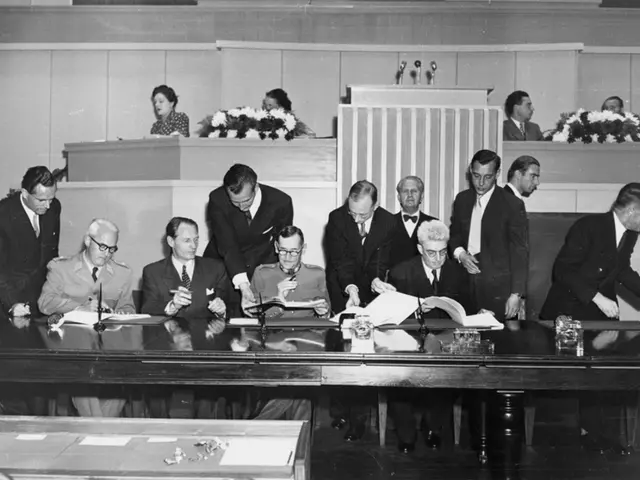Role and Influence of a Showrunner: Decoding the Pivotal Figure Behind Your Favorite TV Shows
The showrunner is the creative powerhouse behind a television series, steering the production from concept to screen by blending management skills with artistic vision. This important figure oversees every aspect of an episode, ensuring it aligns with the overarching narrative and creative vision.
The role of a showrunner has evolved over time, moving from a focus on logistics to one that demands a creative blend of leadership and storytelling vision. The rise of serialized storytelling, streaming platforms, and the shift from episodic content to longer arcs have all played a significant part in this transformation.
As a key responsibility, a showrunner approves scripts, making sure they fit the show's overarching narrative, character development, and pacing. They are also involved in casting, budgeting, scheduling, and post-production, fine-tuning each episode to resonate with the audience and the creative goals.
Distinguishing a showrunner from a producer is essential in understanding who steers the creative ship. While producers focus on logistics and day-to-day production elements, showrunners oversee the creative decisions and narrative vision of a series, starting from concept development and ending with the series conclusion.
By ensuring narrative consistency, compelling character development, and story coherence, showrunners play a vital role in ensuring a script's success. Their collaborative efforts with writers result in cohesive and captivating storytelling.
Effective showrunners possess visionary leadership, strong communication skills, problem-solving abilities, and multitasking skills. By understanding these qualities and aligning script development with showrunner expectations, writers and producers can increase their chances of successful production.
Great showrunners have significantly impacted the television industry, reshaping storytelling landscapes. Recognizing their contributions illuminates the path to creating transformative TV experiences. With the support of tools like Greenlight Coverage, which provides instant feedback, vetted analysis, and comprehensive reports, writers and producers can refine their scripts to meet professional benchmarks and industry standards.
Showrunners are now expected to have a creative blend of leadership and storytelling vision, moving beyond logistical focus. Greenlight Coverage aids writers and producers by providing instant feedback, ensuring their scripts meet the commercial coverage and entertainment standards of the movie-and-TV industry.
Showrunners, as key figures, have influential roles in every aspect of an episode, from approving scripts to post-production, fine-tuning the narrative for audience resonance and creative goals. Effective showrunners, with their visionary leadership and strong communication skills, have significantly impacted the television industry, reshaping storytelling landscapes through compelling narratives and character development.







